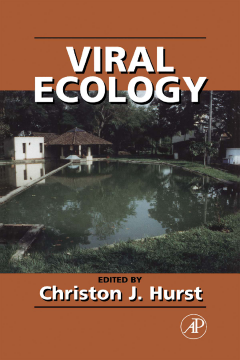
Additional Information
Book Details
Abstract
Viral Ecology defines and explains the ecology of viruses by examining their interactions with their hosting species, including the types of transmission cycles that have evolved, encompassing principal and alternate hosts, vehicles, and vectors. It examines virology from an organismal biology approach, focusing on the concept that viral infections represent areas of overlap in the ecology of viruses, their hosts, and their vectors.
- The relationship between viruses and their hosting species
- The concept that viral interactions with their hosts represents a highly evolved aspect of organismal biology
- The types of transmission cycles which exist for viruses, including their hosts, vectors, and vehicles
- The concept that viral infections represent areas of overlap in the ecology of the viruses, their hosts, and their vectors
"Useful reading for any general biologist and should probably be required reading for medical students to help them understand the dynamic and shifting nature of viral disease. My general impression is that the book fills an important new conceptual niche and that microbiologists or other biologists interested in communicating ecological and evolutionary principles in the context of such a versatile class of organisms would be able to use this book as a text for a heterogeneous class of advanced students."
